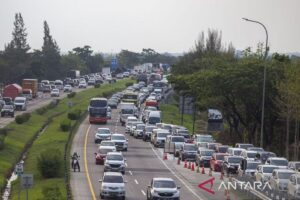Polres Aceh Barat berhasil mengungkap kasus penyelundupan imigran Rohingya yang hendak ke Malaysia melalui Aceh. Kasus ini terungkap setelah polisi melakukan penggerebekan pada sebuah kapal yang tengah bersandar di pelabuhan terdekat.
Dalam penggerebekan tersebut, polisi berhasil menangkap beberapa orang yang diduga menjadi penyelundup imigran Rohingya. Mereka diketahui telah merencanakan perjalanan ilegal ini dengan menggunakan kapal kecil yang tidak layak untuk melakukan perjalanan laut yang jauh.
Menurut Kapolres Aceh Barat, AKBP Andri Reza Astuti, kasus ini merupakan salah satu dari sekian banyak kasus penyelundupan imigran Rohingya yang sering terjadi di wilayah Aceh. Para pelaku biasanya memanfaatkan jalur laut yang tidak terawasi untuk membawa imigran ke Malaysia dengan imbalan sejumlah uang yang cukup besar.
Dalam kasus ini, polisi berhasil mengamankan puluhan imigran Rohingya yang tengah menunggu kapal untuk membawa mereka ke Malaysia. Mereka kemudian diserahkan kepada pihak imigrasi setempat untuk diproses lebih lanjut.
Kasus penyelundupan imigran ini menjadi perhatian serius bagi pemerintah dan aparat keamanan, mengingat banyaknya imigran yang hendak ke Malaysia melalui jalur ilegal ini. Selain merugikan negara dalam hal ketertiban umum, kasus ini juga dapat membahayakan keselamatan dan keamanan para imigran yang melakukan perjalanan dengan kondisi yang sangat berisiko.
Polisi Aceh Barat berkomitmen untuk terus melakukan pengawasan dan penindakan terhadap kasus penyelundupan imigran ini guna mencegah terjadinya kejahatan serupa di masa mendatang. Mereka juga mengimbau kepada masyarakat untuk turut serta membantu pihak kepolisian dengan memberikan informasi jika mengetahui adanya aktivitas mencurigakan terkait penyelundupan imigran.


































